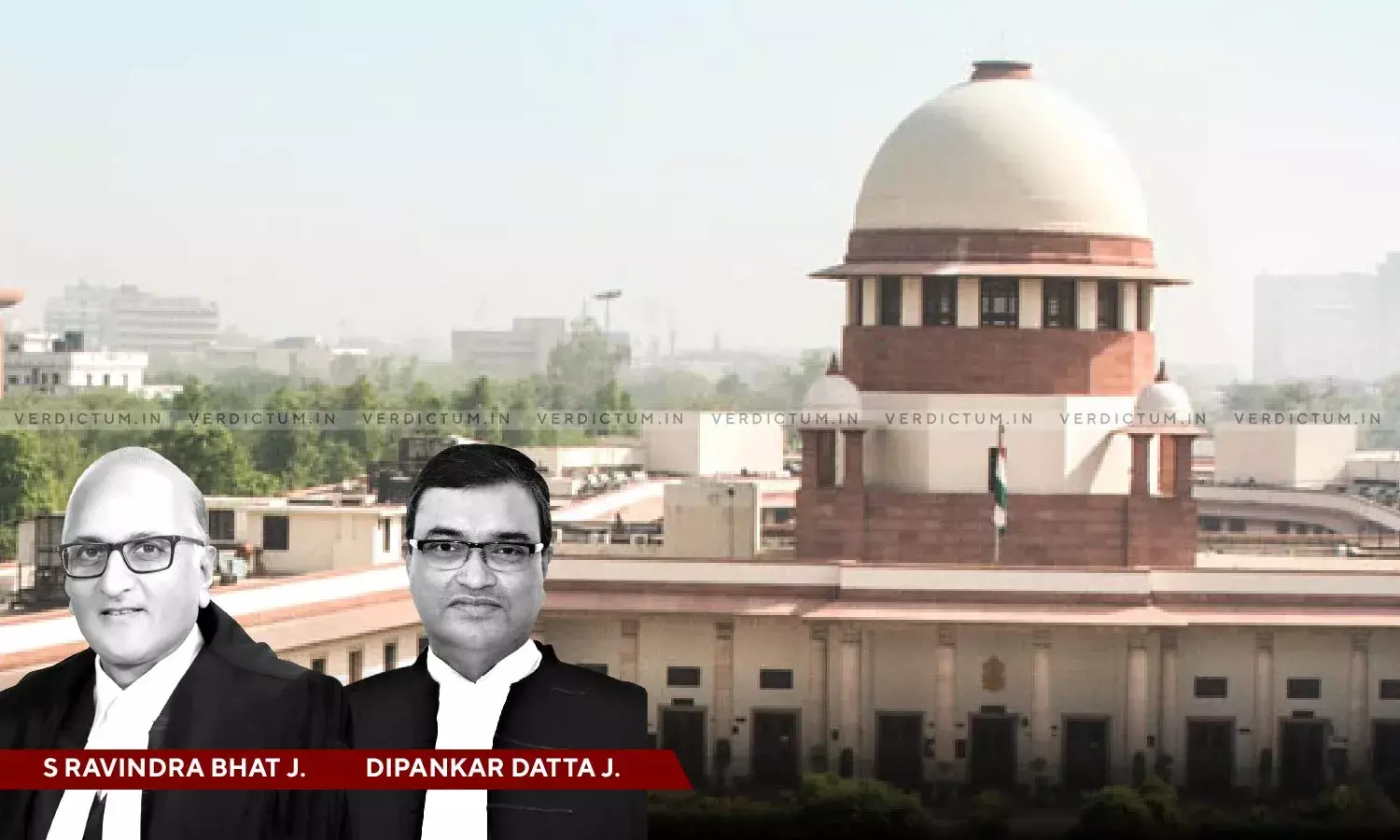SC Upholds Constitutional Validity Of Sec 9-D Of Excise Act 1944, Imposes ₹5 Lakh Cost On Company
The Supreme Court has upheld the constitutional validity of Section 9-D of the Central Excise and Salt Act, 1944, and imposed a cost of Rs. 5 lakhs on the company challenging the same.
The appellants in this matter preferred appeals against the judgment passed by the Delhi High Court wherein the aforesaid Section of the Excise Act was held intra vires and the writ petitions got dismissed.
The two-Judge Bench of Justice S. Ravindra Bhat and Justice Dipankar Datta said, “While dismissing the civil appeals, we endorse the views of the High Court insofar as it spurned the challenge of the appellants to the constitutional validity of section 9-D of the Excise Act. For unnecessarily protracting the proceedings before this Court, although no lis survived for resolution, we impose costs of Rs.5,00,000/- on the appellants.”
The Bench further directed that such amount of costs imposed on the appellants be paid to any charitable organisation involved in providing help, assistance and relief to the children suffering from cancer.
Senior Advocate S.K. Bagaria appeared on behalf of the appellants while Advocate Mukesh Kumar Maroria appeared on behalf of the respondents.
Facts –
A huge demand of about Rs. 94,00,00,000/- was raised by the department on the ground that the appellants and its job workers had manufactured deceptively similar versions of certain regular brands of cigarettes showing sale price whereas the same was sold through marketing chain at the higher price of normal brands and that the difference between the two prices was received by the appellants as flow-back through various super wholesale buyers.
The matter came before the Tribunal and it disposed of the same in favour of the department. The appellants submitted that the statements of the witnesses obtained by the excise authorities during their investigation could only be used if they were given an opportunity to cross-examine the witnesses. However, the High Court dismissed the writ petitions holding that the same had no merit.
The issues for consideration before the Supreme Court were –
1. The vires of Section 9-D of the Excise Act.
2. Even if Section 9-D was intra vires, whether the parameters thereof were completely ignored by the excise authorities?
The Apex Court while considering the above issues noted, “… there is no pending proceeding where the principles and prerequisites laid down by the High Court for invocation of section 9-D of the Excise Act vis-à-vis the appellants’ case could be attracted for a decision.”
The Court further asserted that the appeals carried to the Court by the appellants from the orders of the Tribunal confirming the demands against the appellants stand dismissed.
“We are, therefore, left to wonder in which proceedings would the principles and prerequisites and/or the parameters of the conditions precedent in section 9-D, laid down by the High Court, could at all be applied”, said the Court.
The Court also observed that there is no pending lis where the principles and conditions precedent could be applied and that the endeavour of the appellants to have such appeals argued before the Court is, therefore, of purely academic interest and would not serve any real purpose.
The Court, therefore, directed the appellants to pay the imposed costs within a month and that within two weeks thereof, proof of payment shall be produced before the Registrar who shall satisfy himself that the recipient organization is providing care to children suffering from cancer.
Accordingly, the Court dismissed the appeals.
Cause Title- G.T.C. Industries Ltd (Now Known As Golden Tobacco Limited) Thr. Manager Legal and Anr. v. Collector of Central Excise and Ors.
Click here to read/download the Judgment




